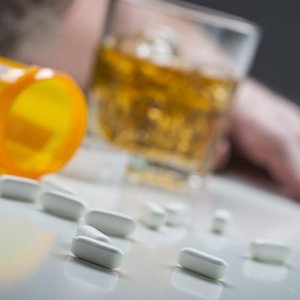2020 Brings Record High Drug Overdoses

The Centers for Disease Control and Prevention released a report informing the American people that, in the 12 months leading up to the report, over 81,000 people died from drug overdoses. This increase, perhaps precipitated by circumstances related to COVID-19, represents the highest-ever drug-related death toll on record. While data from the CDC highlights the increased need for treatment of addiction, there are shockingly few solutions being provided.
Now more than ever, the family members and loved ones of addicts must do everything they can to insist that their addicted loved ones get help.
2020—A Grim Year for Those Addicted to Drugs and Alcohol
The nation’s leading health experts are talking about the effects of the COVID-19 pandemic on the drug-using population in the United States and how this group is at even more risk than usual.
Quoting CDC Director Dr. Robert Redfield: “The disruption to daily life due to the COVID-19 pandemic has hit those with substance use disorder hard. As we continue the fight to end this pandemic, it’s important to not lose sight of different groups being affected in other ways. We need to take care of people suffering from unintended consequences.”
Drug overdoses were already climbing in 2019, with preliminary reports indicating as many as 81,000 drug-related deaths between June 2019 and May 2020 (the highest-ever recorded).
The most significant spike in overdose deaths occurred in January, February, March, April, and May of 2020, with the remaining months for 2020 still forthcoming. By midway through 2021, we should have preliminary reports for the 2020 calendar year for overdose deaths, and experts are concerned that numbers may hit the high-80,000s. If they do, 2020 will far outmatch any recorded year for overdoses.
Quoting Dr. Robert Glatter, an emergency room physician at Lenox Hill Hospital who commented on the CDC findings, “Coupled with isolation and reduced mobility during the lockdown in late March into April, the risk of a deadly overdose – compounded by possible co-infection with COVID-19 – markedly increased based on today’s new CDC data. We are at a dangerous crossroads in the pandemic with so many people in economic distress, many of whom are isolated with substance abuse disorder, depression and anxiety – and compounded with job losses and lack of economic support. We must do more to support such individuals who are at high risk for overdose.”
Drug and Alcohol Misuse and the Immune System

There is substantial evidence and a scientific consensus that people who use drugs and alcohol hamper and reduce their body’s immune function as a result. This makes life even more difficult for addicts, as they are more likely to get sick and more likely to suffer badly when they do get sick.
For the effect of drug use on the immune system, the National Institute on Drug Abuse drafted a full document on how drug use harms the same areas of the body that need to be as strong as possible to fight off a COVID-19 infection. Quoting Dr. Nora Volkow on her NIDA blog, “Because it attacks the lungs, the coronavirus that causes COVID-19 could be an especially serious threat to those who smoke tobacco or marijuana or who vape. People with opioid use disorder (OUD) and methamphetamine use disorder may also be vulnerable due to those drugs’ effects on respiratory and pulmonary health.”
“Drinking a lot on a single occasion slows your body’s ability to ward off infections—even up to 24 hours after getting drunk.”
For alcohol, the National Institute on Alcohol Abuse and Alcoholism sums it up perfectly. “Chronic drinkers are more liable to contract diseases like pneumonia and tuberculosis than people who do not drink too much. Drinking a lot on a single occasion slows your body’s ability to ward off infections—even up to 24 hours after getting drunk.“
But what is the connection between substance abuse, the immune system, COVID-19, and overdose deaths? The link is simple enough. Addicts are more likely to contract COVID-19, just one of many additional risk factors that addicts faced in 2020.
This past year has been considerably more challenging for addicts than most years, which is saying something because addicts already face considerable challenges. With additional difficulties, struggles, health risks, mental distress, financial hardship, the risk for illness, and emotional stresses, many addicts were more likely to use their substances of choice in an even riskier way. That, unfortunately, led to more overdoses and more fatalities.
Addiction Treatment—The Safest Way to Reduce and Eliminate Overdose Risk
During a time when addicts are struggling with an economic crisis, a health crisis/increased risk from COVID-19, and their addiction to drugs and alcohol, it is critical that we do everything we can to help these individuals get clean. One could argue that addicts are more in danger now than ever, given all of the many interconnected risk factors that they face.
Sources:
- https://www.cdc.gov/media/releases/2020/p1218-overdose-deaths-covid-19.html
- https://www.usnews.com/news/health-news/articles/2020-12-17/us-drug-overdose-deaths-reach-record-highs
- https://www.drugabuse.gov/about-nida/noras-blog/2020/04/covid-19-potential-implications-individuals-substance-use-disorders
- https://www.niaaa.nih.gov/alcohols-effects-health/alcohols-effects-body


